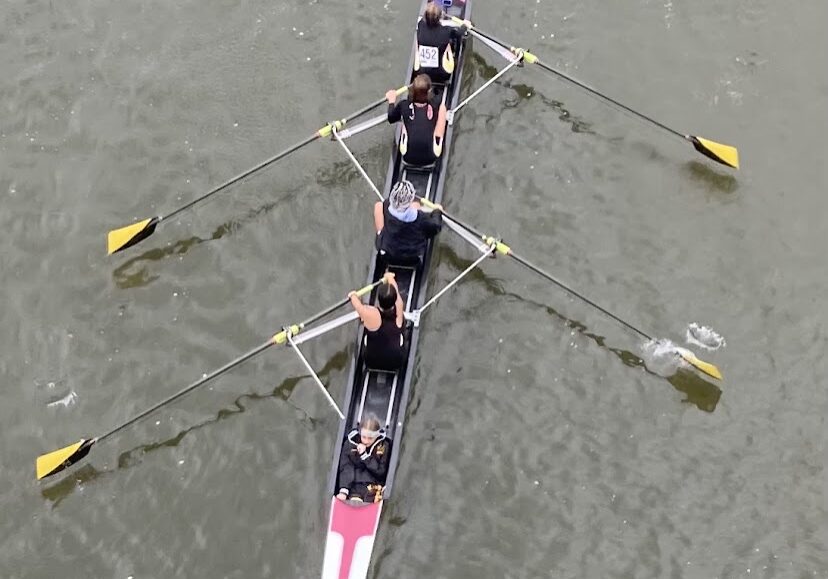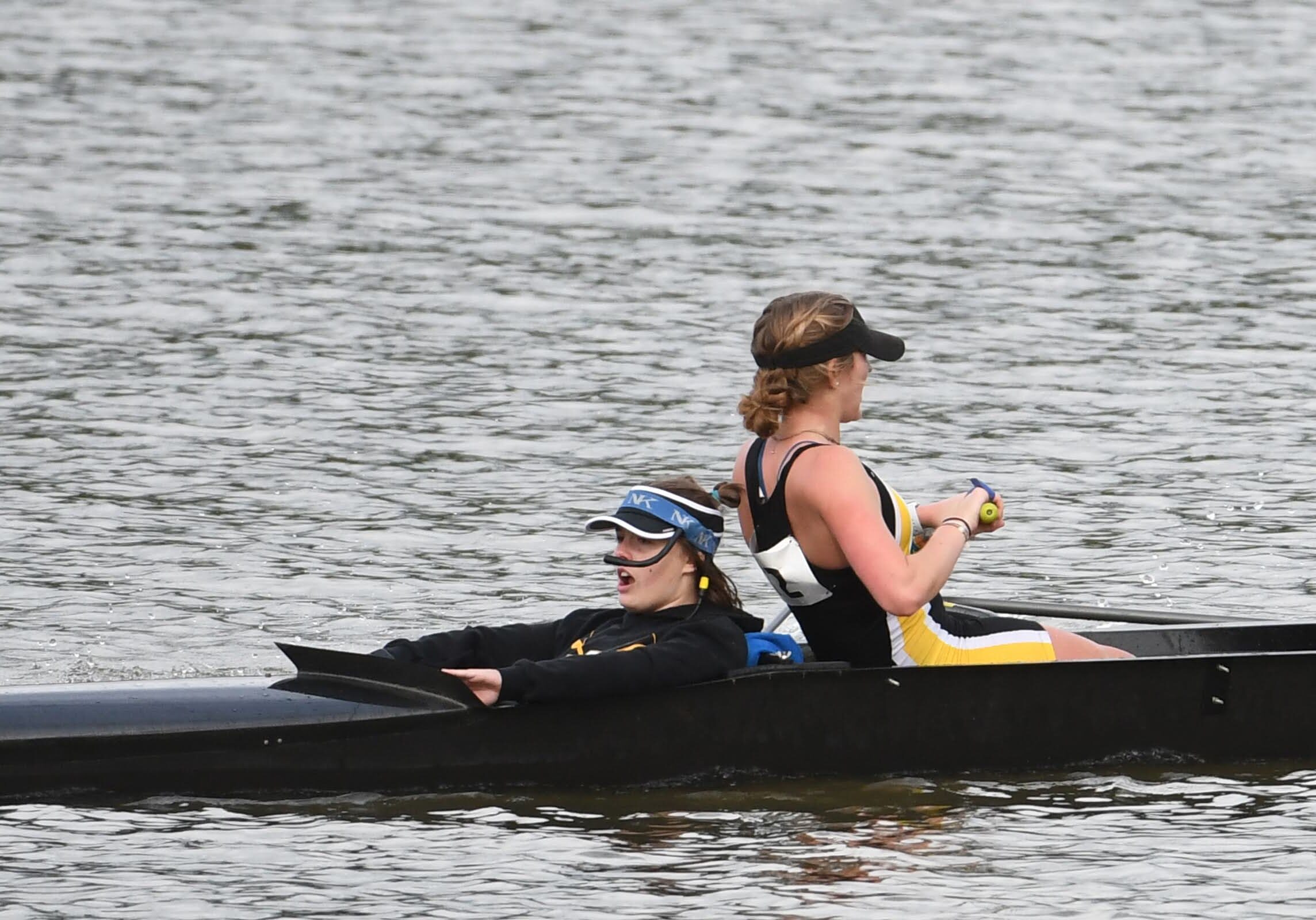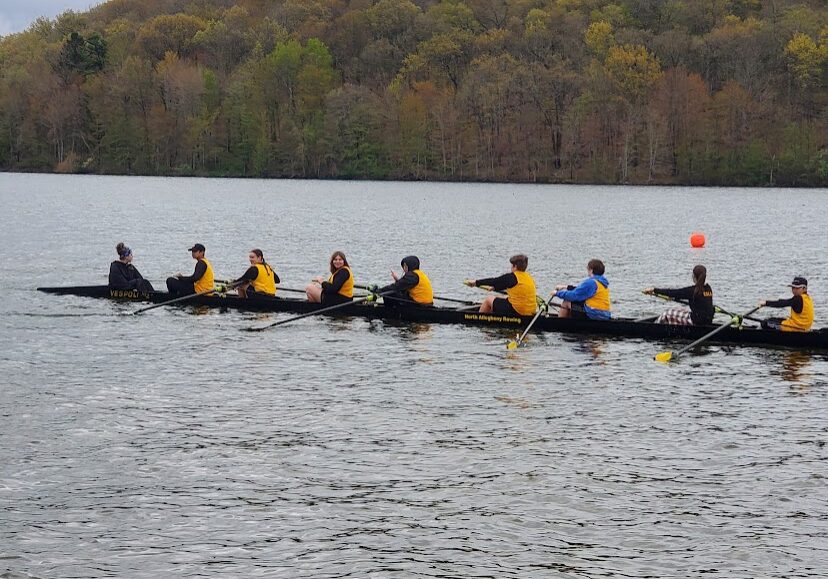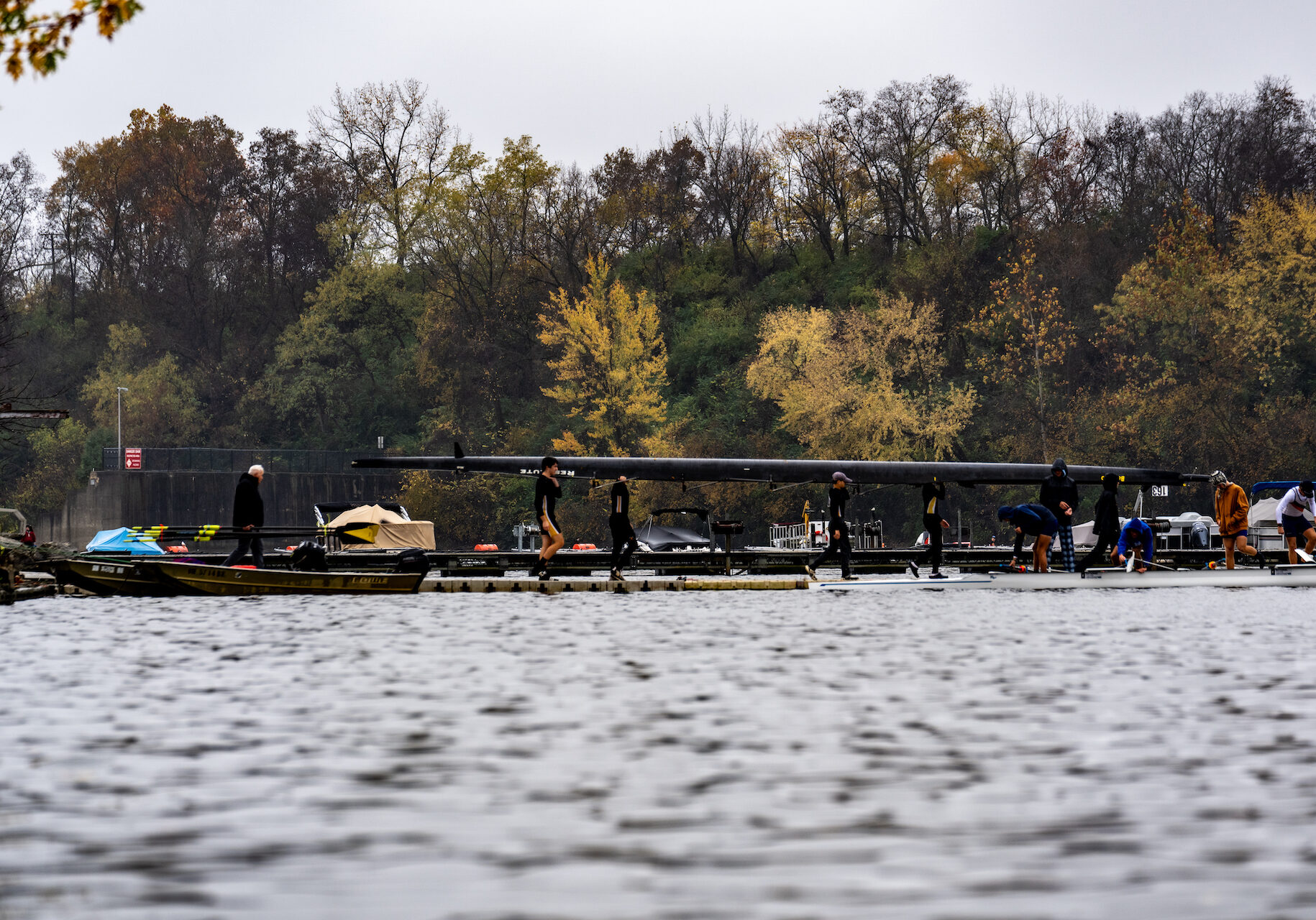
FREQUENTLY ASKED QUESTIONS
You have questions, we hope to have the answers! But if we don't, please send your question to na.row.info@gmail.com and we will get back to you right away!
Although NA Rowing is a full-year sport representing North Allegheny High School, it is managed as a club sport by the NARA Board and only school-sanctioned in the spring.
No! We have a developmental team specifically for 7th & 8th graders. Dev team members join us 3 times a week and then graduate up to the varsity team when in high school! Local scrimmages are held for the dev team.
At North Allegheny, Rowing is a full-year sport, but only school-sanctioned in the Spring.
FALL: The fall season runs from the start of the school year until early November. Rowing is a club sport in the Fall, with no district support. All fees associated with training, travel, and coaching are the responsibility of NARA.
WINTER TRAINING: Winter training starts after Thanksgiving and runs until the Spring season in early March.
SPRING: The official rowing season starts in early March and goes until the end of the school year. Rowing is a school sport in the spring which will require registration on Family ID as well as with NARA. This will include Impact Testing (certain grades only), a Physical Form, and payment to the district as well as the NARA payments.
DEVELOPMENTAL TEAM: You are welcome to register for all three seasons; however, in the Spring you will NOT register on Family ID. That's only for High School. Your schedule, fees, race opportunities, and length of season will also vary.
Our team is organized around four rowing ‘seasons’ – fall, winter, spring, and summer.
Fall is the start of the new year and when most new rowers join the team, although athletes can join at other times, as well. We compete in the fall and these races are usually longer-length races – anywhere from 4k – 6k meters.
Winter training happens mostly indoors. There is ‘erg’ training on the rowing machines, weight training, yoga, and some cross training.
The spring season is our main racing season, with sprint races that are shorter in length (1500m).
In the summer, we offer various week-long camps for both new and experienced rowers. Our learn to row camps are for anyone new to the sport or who want to improve recently learned technique. Athletes will learn the basics of safety, boat handling, and the rowing stroke.
For experienced rowers, our camps provide opportunities to row in a variety of boats, including sweep and sculling boats. The primary focus of this camp will be to provide skill development and refinement and will provide direct and individualized coaching.
The summer camps are a great opportunity for returning rowers to get into small boats and strengthen their skills and technique!
The details about how to register can be found here. Fall registration typically begins in July. Registration must be filled out by a parent/guardian so waivers can be signed.
Winter registration begins in November.
Spring registration begins in March. Rowing is a school sport in the spring which will require registration on Family ID as well as with NARA. This will include Impact Testing (certain grades only) and a current physical.
Summer camp registration typically begins in April and is open throughout the summer based upon the summer camp schedules.
Students do not need prior rowing experience to join, nor do they have to be a freshman to start. Each year, new rowers learn the sport as “novices” and compete against novices on other teams. After a novice year, rowers move up to JV and Varsity and compete accordingly.
What do you need daily?
Running shoes, shorts, t-shirt/ tank, socks and a water bottle. Clothing should be form fitting. Rowing equipment has many moving parts and items like basketball shorts or baggy shirts get caught and can inhibit your movement or even injure you. For reference, our uniform is similar to a wrestling singlet. As the season progresses, you should bring layers- longer yoga style pants, close fitting long sleeved shirts, extra socks and hats are highly recommended. We practice later in the day - so be sure to consider how much the temperature can change in those two hours as the sun begins to set.
We order official team gear a couple of times a year. Novice rowers race in plain black t-shirts & spandex shorts in the fall. The only required item is the unisuit for the spring season.
Gloves - No we don’t wear them, even when it’s cold. They get wrapped around & caught on the oar handles and don't provide adequate grip. The goal is to develop calluses through proper technique, but blisters are a common occurrence. Keeping your hands clean and dry is crucial- sleeping with neosporin on open tears is a great strategy to prevent infection. If a blister does become infected see the school trainer or nurse immediately. If signs of blood poisoning occur visit an ER or clinic ASAP. Coaches check in on hands regularly.
We row when it’s hot, when it’s cold, when it rains and when it snows. We don’t row in high winds, extreme cold, or lightning. The Ohio River’s flow is often high. If it’s too high, the coaching staff will either move practice indoors to NAI or keep the team on land for the day. This information is relayed out ASAP.
Attending a regatta is the best way to learn about the sport of rowing, support your child, and get to know the other parents. The world of regattas, though, is probably a new experience for many of you. To make it the best possible day for your rower AND you, we've compiled a list of tips gained from our own experience (and mistakes!).
WHAT TO BRING
- Layers of clothing (for you and your rower). Many regattas run from early morning to late afternoon, and you’ll want to plan ahead for changing temps. It always seems to be colder and breezier by the water, so be sure to plan for that. You'll have a better day if you are warm! Dry clothes for the ride home can come in handy, too. Dress for a ski trip and a day at the beach!
- Rowers- bring lots and lots of socks. If you think you have enough, through another pair of socks in your bag!
- An umbrella and rain gear. Check the forecast ahead of time. Stash umbrellas in your car just in case. Rowers are strongly encouraged to have a waterproof jacket.
- Sturdy footwear. Do not wear shoes that can’t get dirty, wet or muddy. You will be walking– to and from the parking area and to find a great viewing spot. Comfortable walking shoes, boots, trainers, etc. are your best bet. Rain boots are a good idea for the “mushier” venues. It will typically be a bit of a hike from the parking lot to the regatta site.
- Sun protection (for you and your rower). Warm weather or cold, you’ll still be outside much of the day, sometimes in the open without shade. Sunscreen, hats, sunglasses-bring what you need to be safe.
- A portable chair.
- A blanket. Use it to stretch out on or to bundle up in. An extra blanket for your rower who most likely dismissed the idea when you suggested it at home but now wants to borrow yours.
- The food tend is for the rowers and parents are asked to provide their own food. There are sometimes exceptions to his, depending on the location, but we’ll be sure to let you know if that’s the case. A few extra snacks for your rower is not a bad idea. He or she will be hungry and having some favorite, healthy snacks on hand will make you feel like you are crushing this parenting thing.
- Rowers should bring a reusable water bottle. We will have jugs of water on hand to refill.
- Regattas do not usually run exactly as posted. Your rower’s event may be much later than scheduled, or sometimes much sooner if an event scratches.
- Proper Expectations. There are porta-johns at all regattas. Plan accordingly. An extra roll of TP stashed in the car has come in handy more than once when supplies (inevitably) run low at the regatta.
- A pair of binoculars. You'll generally be a fair distance away from the boats, so binoculars will help you see the action better.
- Books, homework, cards, bring whatever you and your family need to while away the downtime. If you're looking for an inspiring book about rowing that will make you feel like you know a thing or two about the sport, pick up a copy of The Boys In The Boat by Daniel James Brown. After reading it you'll be able to slide rowing terms like 'swing' and 'stroke seat' into your conversations with ease.
Remember...
The coaches need to have time and space to coach and that means that parents are asked to steer clear of the trailer, boat, and dock area so as not to interfere. You're free to cheer and make noise from the viewing areas and socialize with other parents and rowers around the food tents.
All parents were novice parents once so if you are unsure of something, please ask! We look forward to seeing you at the next regatta, chatting, and hanging out with you.
For those interested in being a chaperone at regattas, clearances are needed with both the NA district and USRowing.
NA District Clearances: Clearances are maintained in the NASD database and not by NARA. All clearances need to be submitted to either the NA Central Administration Office or an NA School Office during regular business hours. Information regarding clearances and procedures may be found here.
USRowing Clearances: As an organized member of USRowing, NARA falls under the jurisdiction of the Center for SafeSport and is required to uphold the policies, procedures, and proactive best practices to prevent abuse and misconduct. All adults who are volunteers and traveling with the team for regattas must have an up-to-date SafeSport certification on record. SafeSport training is free for all USRowing members and can be completed online by going to https://safesporttrained.org/#/public-dashboard. The core course is required to be taken every three years and there are annual refresher courses that are required for the years in between each core course.
If you have any specific questions regarding chaperoning, please contact us at narowingtravel@gmail.com.
In addition to being a chaperone, there are lots of other opportunities to get involved and we're always looking for parents who are willing to help out! Please reach out to us at narapres@gmail.com to receive more information on specific ways you can volunteer and get involved.



